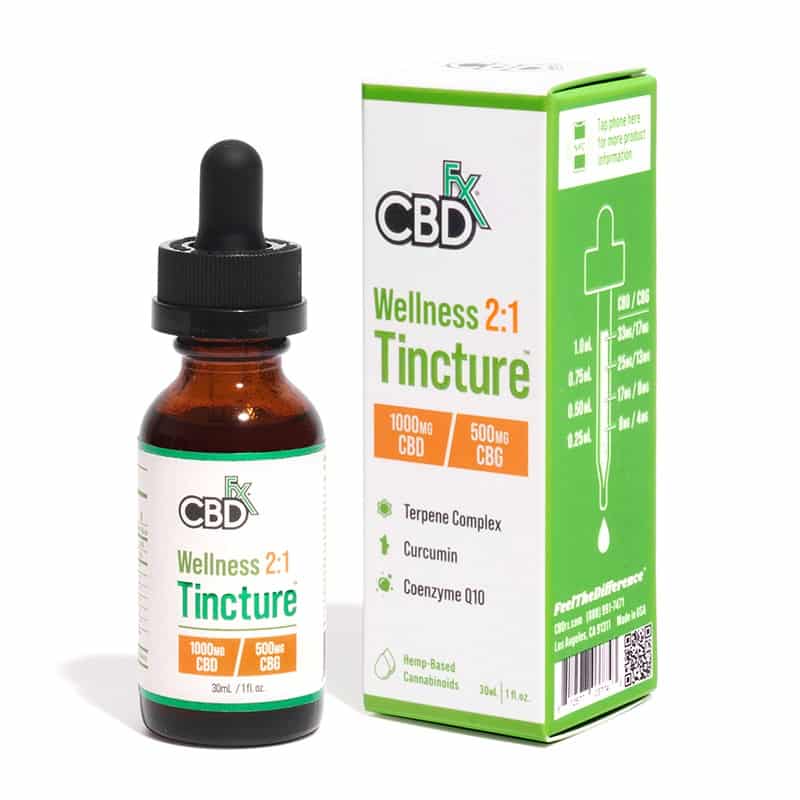CBD Oil for Depression: Can It Ease the Epidemic?

Depression is a delicate subject to discuss, but also a serious epidemic wreaking havoc globally. With traditional medication proving insufficient, many are turning to more natural remedies. Can we use CBD oil for depression to successfully alleviate its symptoms? Read on to find out.
In the US alone, depression is among the most common psychological and psychiatric disorders. According to the survey conducted in 2017 by the National Institute for Mental Health (NIMH), an estimated 17.3 million (or 7.1%) of adults in the United States suffered from at least one major depressive episode that year.
The hardest hit age group are adolescents from 18 to 25 years old (13.1%), multiracial adults (11.3%), and females on average are 64% more likely to have a depressive episode than males (8.7 to 5.3%). On a global level, the World Health Organization reported that an estimated 300 million people were affected by depression the same year. This is 4.4% of the world’s population.
If these numbers seem scary, that’s because they are. Sadly, it’s also likely that, as large as they are, they underscore the gravity of the problem at the same time. With the embarrassing nature of the condition, it often goes unreported. For this reason, we don’t even know the full scope of the epidemic because the statistics take into account only those who have been diagnosed; many more may be suffering.
Conventional Depression Treatments
If they want to seek treatment, those who are affected by depression often don’t know what to do about it or how to ask for help. Generally speaking, mental disorders are still stigmatized in societies worldwide and many people consider it a shame (or even a weakness) to admit to such imbalances.
For decades, we have been treating depression with the implicit assumption that science has unequivocally understood what happens on the biochemical level to someone who is suffering from it. Antidepressants were, in turn, designed to treat a chemically imbalanced brain, one where neurotransmitters such as serotonin are present in disproportionate levels.
Although the positive effects of antidepressants cannot be written off, recent reviews are suggesting that medicalizing against depression may actually be doing more harm than good, creating abnormal brain states rather than curing them. Whereas antidepressants increase the levels of neurotransmitters such as serotonin, the problem is actually in their receptors not being active enough.
Antidepressants were originally not meant to be taken on a long-term basis, and they were supposed to act as support to the main weapon against depression – psychological or psychiatric counseling. However, as people would experience relapses after finishing a round of therapy, chronic use became widespread, and somewhere down the line the medication became the primary “solution.”
With mental disorders on the rise, psychiatric patient numbers started accruing exponentially, burdening the feeble mental healthcare system and psychotherapy as a discipline still in its infancy. This is why medication became something of an “easy fix” for disorders lower on the spectrum, such as depression.
With Prozac busting the mainstream mental medicalization gates open, psychiatrists started prescribing serotonin-based “cures” to any patients showing symptoms resembling depression. Eventually, this situation got to the point where most people (more than 70%) on SSRI antidepressants actually don’t fulfill the diagnostic symptoms of major depressive disorder.
As patients started taking SSRIs chronically, they would rely more on their effects in mitigating the symptoms than work on resolving the underlying causes. Soon, masses of people from all generations were depending on these drugs to manage their suffering.

Long-term use of antidepressants, which regulate the levels of neurotransmitters in the brain, ultimately changes the way the it functions; this leads to several serious problems:
- Patients form dependence or addiction to the medication because the new chemical state becomes normal; it becomes increasingly difficult to quit using the medication.
- Aside from this, over 50% of patients on antidepressants experience side effects, some of which can be very disruptive to daily life;
- Unless high enough doses are used, the effectiveness of the antidepressants has been found in clinical trials to not be that much higher than that of placebo. Larger doses also exacerbate more serious side effects.
The case is clear: depression is not being treated well enough with conventional medication. The world needs better, safer solutions.
What Does CBD Do?
CBD oil is made from the cannabinoid cannabidiol (CBD), which is a compound found in cannabis plants and hemp (cannabis plants with less than 0.3% THC content). It is often referred to as a secondary cannabinoid because most cannabis plants grown commercially are engineered to maximize the levels of THC, the cannabinoid that causes psychoactive effects.
However, hemp oil, whether it’s rich in CBD or not, has a wide array of applications which have just started gaining scientific attention a few decades ago, while CBD itself has been garnering wide publicity since only several years ago.
Getting people “high” is also not one of CBD’s features. In fact, CBD oil does not only not have mind-altering properties, it also has the capacity to reduce the effects of smoked cannabis or THC oil (the chemical compound which elicits the mind-altering effects).
Using CBD oil for depression is basically employing the chemical power of the most beneficial compound in cannabis. It can be used for naturally treating a vast array of health conditions, ranging from anxiety to depression, to auto-immune disorders, cancer, and many others. A simple online search returns numerous peer-reviewed studies which demonstrate that CBD oil is one of the most risk-free and effective products you can use to improve your health (without any psychoactive effects whatsoever).

Our recommended brand of CBD oil and tinctures for depression is CBDfx. Click here to shop
How Can CBD Oil Alleviate Depression?
How exactly can we use CBD oil for depression symptoms? Well, CBD functions in one major way – it stimulates the parasympathetic nervous system (which is the part of your nervous system responsible for promoting rest, healing, rejuvenating and regenerating) and it inhibits the effects of the sympathetic nervous system (which is responsible for eliciting stressful responses, both physical, psychological and emotional, as well as triggering the fight-or-flight mechanism).
Unlike its cannabinoid relative THC, CBD isn’t an agonist for the CB1 and CB2 receptors. Its neurochemical action, specifically in terms of depression and related mental disorders, seems to be centered around its activation of the 5-HT1A receptor. This is a receptor of the neurotransmitter serotonin, which is thought to be responsible for catalyzing states like anxiety and happiness, and generally regulating the mood.
Experiments on rodents indeed confirm that the administration of CBD when the animals are under stress attenuates the heart rate and blood pressure. The researchers confirmed that this process is at least partly attributable to the action of the 5-HT1A receptor because they also used a substance that is an antagonist of this receptor, which blocked the effect of CBD on it, making the stress symptoms persist.
Some scientists claim that depression is an adaptive psychological behavior due to excessive exposure to stress (regardless whether it’s physical, psychological, or emotional). So, it reasons to say that if you reduce the stress load which your body is dealing with, the depression symptoms should also be alleviated.
These effects can be plainly seen in results of studies that look at the fundamental effects of CBD on the brain chemistry behind mood regulation. Plenty of research has been published recently showing that CBD oil is not only highly effective in treating depression (showing great further promise in developing pharmaceutical drugs based on it), but also in treating other psychiatric disorders such as anxiety, schizophrenia, and the many mood disorders.
Here are a few scientific reports supporting the therapeutic mental effects of CBD oil:
- This 2014 study found antidepressant-like and anxiolytic-like effects of cannabidiol, suggesting that they rely on its action on the 5-HT1A receptor.
- This 2018 study reported that “CBD induces fast and sustained antidepressant-like effect in distinct animal models relevant for depression.” The experiments were conducted on rodents, and their brain chemistry was analyzed for changes.
- This 2018 study found anxiolytic (anti-anxiety), antipsychotic, and neuroprotective properties of CBD, citing it as a “useful and promising molecule that may help patients with a number of clinical conditions.”
- This 2019 study showed antidepressant and pro-hedonic effects in rodents.
Should You Try Using CBD for Depression?
When it comes to your neurotransmitters and the biological balance of the brain, CBD oil seems to help return its chemistry to a more stable state and steady the flow of the system that regulates stress – leading to a more improved and stable mood. According to anecdotal reports, there is also a compound effect which builds upon the initial relief that using CBD oil provides that can support one to find more reasons to feel better and adopt behaviors which will make them feel better in the future.
All this is done with a natural and abundantly legal compound that has no confirmed health hazards. A caveat here is that it has not been approved by the FDA and that they are in fact advising caution when using CBD, especially in terms of its potential negative interaction with other substances such as pharmaceuticals and alcohol. The only FDA approved medicine containing CBD is Epidiolex used for treating epilepsy. Because CBD oil hasn’t received federal approval as a medicine and enough scientific validation, we also don’t know the adequate dosages that should be taken for corresponding conditions, so this has to be a matter of personal experimentation.
While it’s clear that the study of the effects of CBD and CBD oil for depression is in its infancy (meaning no large-scale human trials have been conducted), the results are promising and indicative of CBD oil receiving more scientific and public attention in the coming years. So, while we are not in any way advocating CBD oil as a “cure” for depression, the positive scientific and anecdotal reports coupled with slim to none health risks do make it worth a try, especially for those not having much luck with conventional treatments.
CBD oil also has numerous other health benefits, which only add to its value. And, with the stigma around CBD and cannabis in general dissolving faster than ever, using CBD oil is mostly not even a taboo any longer.
When fighting depression, you need all the help you can get. Hopefully, CBD oil can increase your chances of getting better. Still, before using CBD, make sure you consult with your physician or counselor, at the very least to learn about any potential negative interactions in case you are using pharmaceuticals.
Have you tried using CBD oil for depression already? What are your experiences?
If you haven’t, are you considering it? What are your concerns?
Please share them with us in the comments below.
EntheoNation – the process of awakening the Divine within.
Entheo Nation – a global tribe of visionary people living life at the cutting edge of awakening.
EntheoNation is a web show featuring visionaries pioneering the cutting-edge of awakening through psychedelic science, modern shamanism, & new paradigm lifestyles.
Our vision is an environmentally sustainable, socially-just, spiritually-fulfilling, and evolved human presence on this planet, one that integrates ancient wisdom, with modern times.
